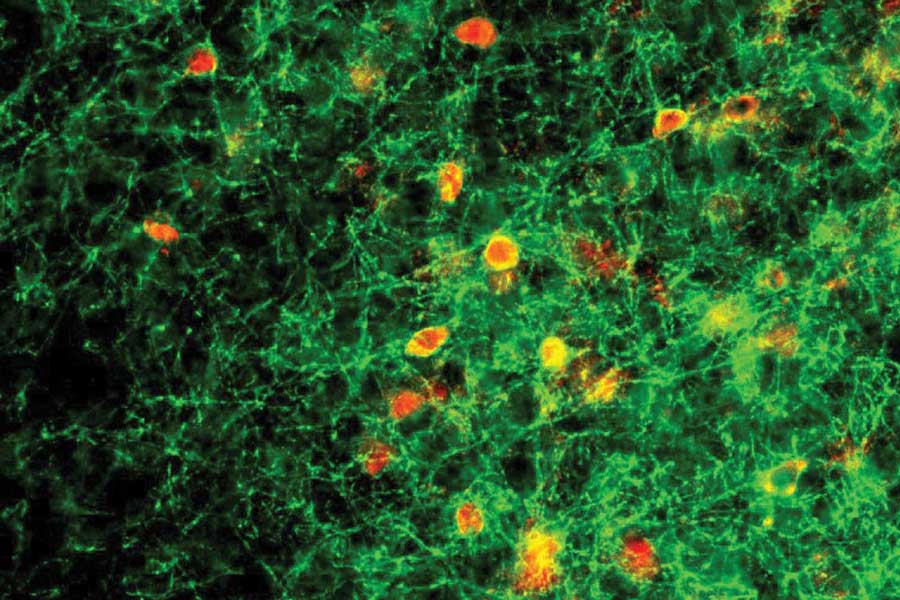
Abnormal behavior of parvalbumin (PV) neurons (in red) in the auditory cortex of the mouse brain manifests as parental neglect. Normal activity of PV neurons depends on the Mecp2 gene, without which female mice can’t learn to respond to distress cries of young pups.
The brain undergoes dramatic change during the first years of life. Its circuits readily rewire as an infant and then child encounters new sights and sounds, taking in the world and learning to understand it. As the child matures and key developmental periods pass, the brain becomes less malleable—but certain experiences create opportunities for parts of the adult brain to rewire and learn again.
New research by Billy Lau, a postdoctoral researcher working with Assistant Professor Keerthi Krishnan in the Department of Biochemistry and Cellular and Molecular Biology in UT’s College of Arts and Sciences, examines the time during which an adult female mouse first learns to recognize and respond to the distress cries of young mouse pups as one such opportunity for rewiring.